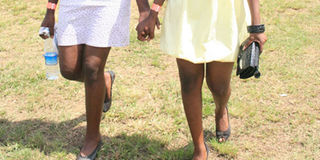Decent dressing linked to attitude and performance at the workplace

The Ministry of Public Service, in line with Section F-J of the Uganda Public Service Standing Orders 2010, has issued the dress code for public servants.
The notice describes decent dressing as ‘dressing in a manner that is socially acceptable and generally considered to be smart, good, reasonable and portrays a good image of public service.’
However, the directive has generated mixed reactions from members of the public regarding the guideline, but mainly on how the dress code affects performance at workplace.
I am writing in support of the dress code guideline, because in my opinion, I believe that decent dressing and proper body trimmings are linked to attitude and performance at the workplace.
Allowing public servants to dress casually in most cases implies that public service also allows a casual attitude and indecency, which results in a casual or lazy work ethic and consequently casual performance.
In many instances, casual and/or indecent dressing is linked to negative attitude at the work place, which has a bearing on an individual’s performance.
I believe that there are some things one should bear in mind to help determine the dress code that best suits a workplace environment. These include the nature of clients, how often you interact with clients, the nature of the business - whether you interact with them at official or informal level, and above all, portrayal of self discipline and moral image of oneself.
Given the nature of clients and the kind of business in a public servant does, one cannot dress shabbily and expect to be taken seriously by the clients.
Keep in mind that many clients will always judge any workplace seriousness and productivity based on its level of professionalism as reflected by the dress code. Therefore, we call upon supervisors to ensure immediate enforcement of dress code guideline.
Bernard O. Odida,
[email protected]


